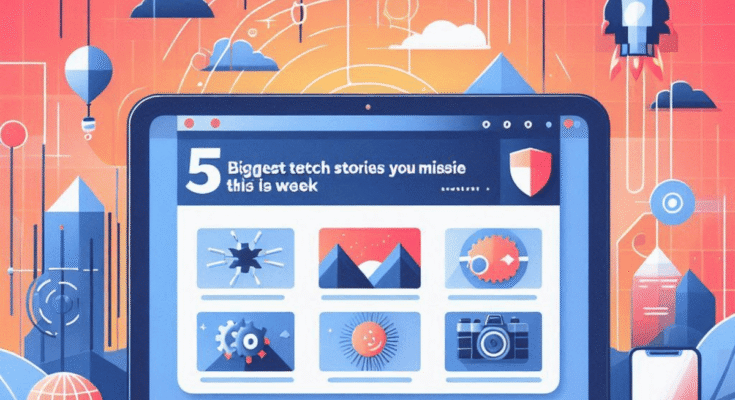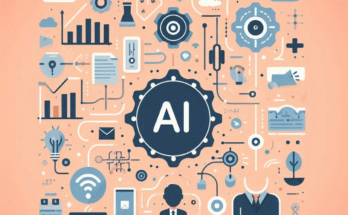Story 1: US and China Reach Basic Agreement on TikTok
What Happened
For years, US officials have been concerned that TikTok’s parent company in China could share data from American users or allow the Chinese government to influence the app. This week, negotiators from both countries agreed to a preliminary plan. That means the details are not yet finalized, but the broad points are in agreement. 5 Biggest Tech Stories You Missed This Week.
The plan
The US portion of TikTok would be managed or owned by US companies. This would address national security concerns and avoid the need to ban the app outright.
Why this matters
Data and privacy: Millions of Americans use TikTok every day. Having the data monitored in the US would reduce the risk of it being secretly smuggled abroad.
Ban protection: Many creators make money from TikTok. A sudden ban would hurt their income and communities. The deal keeps the app in the US.
A model for other apps: If this system is successful, similar rules could be created for other foreign apps. Governments around the world are watching.
Simple example
- Imagine you like a local café but don’t know who the owner is. Some people think the owner could misuse customer data. The city says, if you want to continue serving here, you need to have a local manager who controls the data. That’s what’s happening with TikTok.
What happens next
The details are still being worked out. US companies could buy shares or take control of the data storage space. The timeline could change if the talks drag on.
Story 2: Nothing raises $200 million, now plans to make AI-powered gadgets
What happened
Nothing is a new British tech company started by Carl Pen, who is also the co-founder of OnePlus. This week, the company raised $200 million from investors, giving it a total valuation of $1.3 billion. The company has already sold billions of dollars’ worth of phones and earbuds. Now it wants to make gadgets that are ready to work with artificial intelligence from the start.
Why this matters
New competition: Most phones are from big companies. Nothing’s growth shows that there’s room for new ideas.
AI-first future: Nothing is building devices that have AI built in from the ground up, rather than adding AI later.
Investor confidence: The fact that it has raised so much capital shows that big investors believe in the company’s vision.
Simple example
Think of building a house. You can either add smart wiring later or design a smart home from the ground up. That’s what Nothing is doing with gadgets and AI.
What’s next
Keep an eye out for new product announcements. Will they be phones, wearables, or something new? How will their pricing differ from Apple and Samsung? These decisions will determine Nothing’s future.
Story 3: Google to spend £5 billion on AI in the UK
What happened
Google announced that it would spend £5 billion (about $6.8 billion) in the UK over the next two years. The bulk of this will go towards building a massive data center near London that will support Google Cloud and AI services. The company has pledged to use clean energy and smart cooling to protect the environment.
Why this matters
Fuel for AI: AI services require powerful computers all the time. This investment will bring faster and more reliable AI tools to people and businesses.
Economic impact: The construction could create thousands of jobs.
Green technology: Google is reducing the environmental concerns of data centers by using clean energy and efficient cooling.
Simple example
Think of AI as a car. It can’t run without fuel. In this instance, the “energy source” is computational capability.
. Google’s new data center is a giant fuel station for AI.
What’s next
It remains to be seen how quickly the data center opens, how it transforms Google’s AI products, and whether it brings new projects with British universities or startups.
Story 4: Oracle to help run TikTok’s US operations
What happened
Another side of the TikTok story: Oracle, a major US tech company, is expected to help TikTok’s US operations under the new plan. Oracle already provides secure cloud services to many businesses, so regulators consider it a trusted partner.
Why this matters
The trust factor: Having a large US company involved could reduce security concerns.
Expertise: Oracle has experience securely handling large amounts of data, which is important for TikTok.
Model for other apps: This approach, in which a local company handles sensitive parts of a foreign app, could be common.
Simple example
Think of a bank that holds your valuables. You feel more secure if the bank is local and well-regulated. Oracle could be such a “bank” for TikTok’s US data.
What happens next
We’ll find out which other companies are joining the deal, how the work will be divided, and how it will impact TikTok’s rules and performance.
Story 5: US security vs. Chinese-run in TikTok deal
What happened
During the talks, the Chinese side said it wanted to keep some of TikTok’s cultural or operational features, sometimes called Chinese color. The US side is focusing more on national security and may pay less attention to those parts.
Why this matters
Soft power vs. security: Keeping Chinese elements allows China to retain some cultural influence. Removing them could change the app experience.
User experience: People like TikTok’s current algorithm and style. Too many changes could make the app less appealing.
Technical challenge: Algorithms and features are difficult to share between countries.
Simple example
It’s like buying a famous restaurant but changing its recipes. The name will stay the same, but the taste may change. Negotiators are trying to avoid that.
What happens next
Both sides will have to maintain TikTok’s recognizable style while meeting security requirements. The final deal could set an important precedent for other global apps.
The big picture: These 5 stories. These stories show that tech is no longer just about new gadgets, but also about controlling data, protecting national interests, and preparing companies for an AI future.
Government and technology: Governments are writing the rules for major platforms.
The race to AI: Companies and countries are spending big to get ahead in AI.
Impact on consumers: Even if you’re a regular consumer, these decisions will affect your apps, your privacy, and future gadgets.
Conclusion
This week’s five big tech stories tell Here are some of the stories that show how quickly things are changing: a global app under political pressure, a startup pushing ahead in AI, a company spending billions on infrastructure, and the culture vs. security debate.
Knowing all this helps you understand not just the headlines, but the forces shaping our digital world.
Stay tuned, in the coming weeks, we’ll find out what the final TikTok deal looks like, where Nothing’s AI-first devices end u, and how Google’s investment is changing the UK tech landscape.
Yes, it could. There’s already a law that says TikTok must separate from its Chinese parent company or face a ban. This new plan is designed to prevent that ban.
This is a gadget that’s built with AI from the start — not a regular device with AI added later. It could have special chips, intelligent software, or always-learning features.
Data centers are large server farms where your apps run. A local, powerful data center means faster loading times, more stable services, and the potential for new features.
Because Oracle is a trusted American company with experience in secure cloud systems. Adding it will satisfy US authorities and keep TikTok running smoothly.




